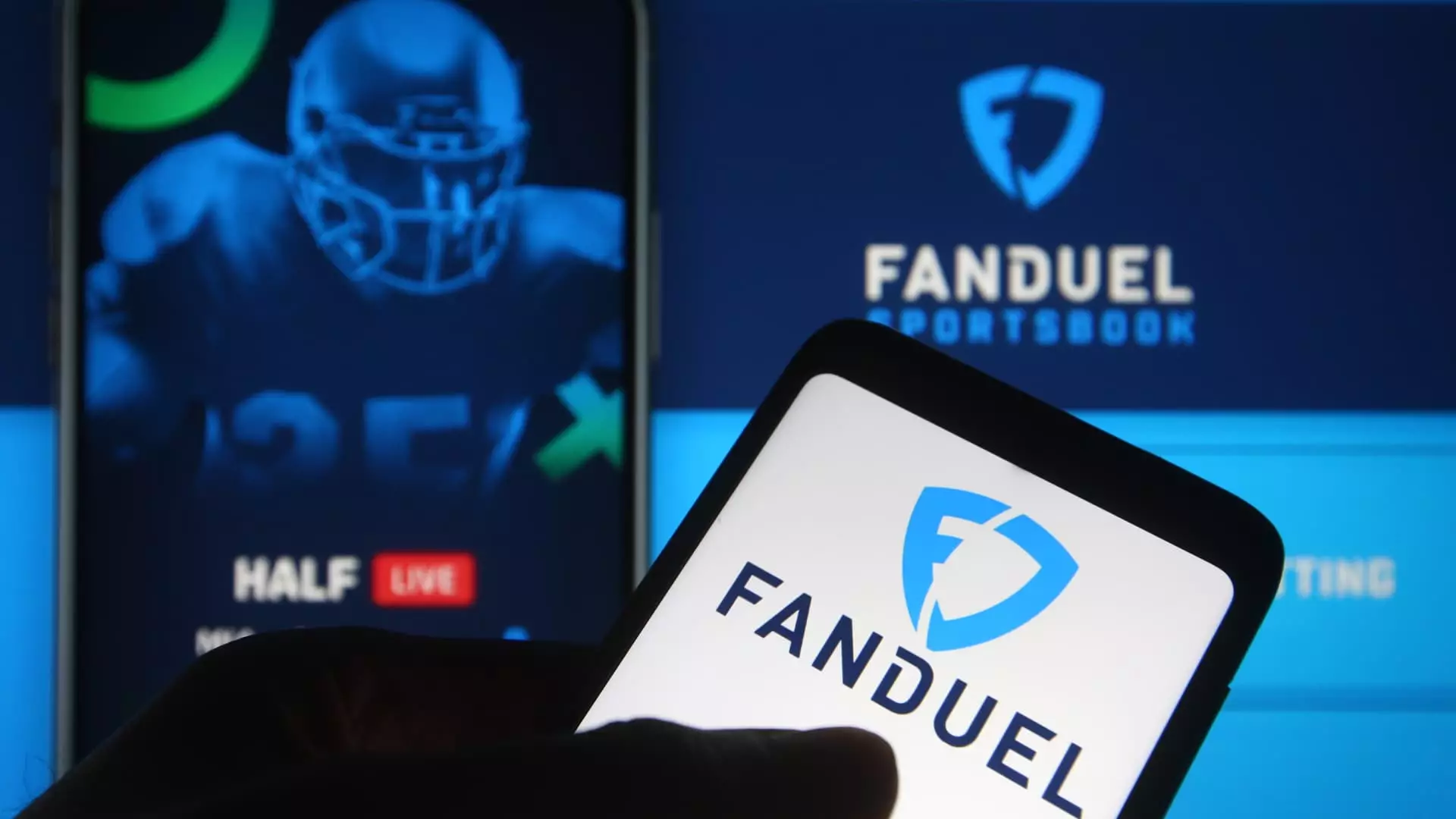The world of regional sports networks is undergoing a seismic shift, ushering in a new era of collaboration between traditional sports broadcasting and the rapidly growing online gaming sector. In a recent court filing, Diamond Sports, the operator of numerous regional sports networks, announced a significant naming rights deal with FanDuel, a leading player in the sports betting landscape owned by Flutter Entertainment. This partnership is not just a rebranding exercise; it represents a strategic maneuver as the networks navigate the turbulent waters of bankruptcy and operational restructuring.
The newly established agreement to rebrand Bally Sports channels comes at a pivotal moment, coinciding with the start of the National Hockey League (NHL) season and the imminent commencement of the National Basketball Association’s (NBA) 2024-2025 season. This timing suggests that Diamond Sports is eager to leverage the visibility and excitement of live sports to boost its recovery efforts. Should the company successfully navigate its bankruptcy proceedings, FanDuel is positioned to become a long-term naming rights partner, which, if approved by the courts, may alter the dynamics of how sports broadcasting interacts with online gaming.
The deal encompasses more than just a name change. FanDuel is set to acquire up to 5% equity in the reorganized entity and rights to performance warrants, an avenue that deepens their financial commitment and signifies their belief in the potential of Diamond Sports’ revitalization. The strategic fit between regional sports networks and the online gaming industry is evident, as both sectors aim to capture the same audience: sports enthusiasts looking for enhanced engagement. This alignment underscores why Diamond Sports views FanDuel as an ideal partner amidst ongoing struggles.
The evolution of Diamond Sports has been anything but smooth. The company originally emerged as a result of Disney’s divestment of regional sports networks following its acquisition of Fox Corp.’s assets. Initially branded under Fox Sports, the networks transitioned to Bally Sports after a partnership with Bally’s Corp. However, due to myriad financial challenges and a settlement reached earlier this year between Diamond Sports and Sinclair, the previous naming rights deal had to be discarded. Notably, Sinclair, which retains a significant stake in Diamond Sports, faces allegations from the company of intensifying its operational difficulties.
Diamond Sports’ bankruptcy filing last year is emblematic of a greater trend impacting regional sports networks across the United States. As the company strives to reorganize, it has encountered challenges in retaining content viewers are passionate about. MLB teams have been notably quick to exit their contracts, with reports indicating that the company may only retain the Atlanta Braves after a mass exodus of 11 teams. The sentiment expressed by Diamond’s legal representatives indicates a desire to maintain these affiliations rather than allowing the networks to distance themselves from prominent franchises, a sign of the difficulties facing a company in turmoil.
The ramifications of Diamond Sports’ struggles extend beyond its own operations. As MLB teams like the San Diego Padres and Arizona Diamondbacks have pursued local broadcasting alternatives, the broader landscape of sports viewership is shifting. The encroachment of technology-driven platforms has created a competitive environment where teams seek to maximize local fandom through direct-to-consumer solutions. Such platforms allow greater flexibility and viewer engagement, encouraging teams to foster relationships outside of traditional broadcasting frameworks.
Moreover, partnerships like those established between NHL teams and streaming services such as Victory+ reflect a growing trend among teams to explore diverse avenues for audience connection. This change, driven by financial constraints and the need to adapt to contemporary viewing habits, signifies a fundamental rethinking of how sports-centric content is distributed and monetized.
The impending partnership between Diamond Sports and FanDuel illustrates a deeper transformation in the sports industry, where the lines between broadcasting, sports engagement, and gaming are blurring. As FanDuel emerges as a pivotal player within this narrative, its branding initiative can potentially enhance both companies’ fortunes, offering a blueprint for others in the sector grappling with similar challenges.
As this story unfolds, stakeholders from leagues to teams must navigate the evolving landscape carefully, making deliberate choices that reflect the shifting expectations of today’s sports fans. Diamond Sports stands at a critical crossroads, and whether it can successfully leverage this partnership to emerge from bankruptcy and reshape its operational strategies will significantly impact the future of regional sports networks.

